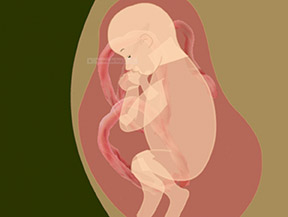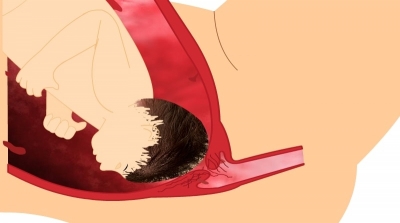Why does polyhydramnios occur?
Polyhydramnios can happen for various reasons –
- When the baby has a congenital defect in swallowing mechanism or has a defect in its food pipe, which makes it difficult for it swallow,it may not be able to absorb the fluid and thus leads to accumulation of fluid. Usually it swallows the amniotic fluid and re circulates it and it brings it out in the form of urine.
- When mother has uncontrolled diabetes, it may cause excess amniotic fluid production
- When baby has a congenital anomaly of the heart
- Twin pregnancy
- Rh incompatibility
What are the symptoms of polyhydramnios?
Most of the symptoms of polyhydramnios are due to the overly enlarged uterus exerting pressure on other organs.
- Difficulty breathing
- Swelling in the feet
- Feeling huge and tired
- Uterus may seem bigger than for the gestational age
- Constipation
- Decreased urine
How is it diagnosed?
Doctors usually suspect polyhydramnios if the uterus of the pregnant woman is large ( almost 2 to 3 weeks more than gestation) or if the doctor has trouble feeling the baby or hearing its heartbeat.
Complications because of polyhydramnios –
- Preterm labor
- Preterm birth
- Placental abruption – Placenta getting separated from the wall of the uterus before birth
- Still birth
- Fetal malposition
- Cord prolapse
Diagnosis and test
If you have the above symptoms and the doctor suspects polyhydramnos, she may do an ultrasound to know if there is excess of fluid. Apart from that, she may do a glucose tolerance test to see for maternal diabetes. Additionally, tests like amniocentesis may be done to look for any abnormalities relating to baby and a Non-stress test and Doppler may also be done. Doppler to look for any abnormalities of the heart.
Treatment
Mild cases may not need any treatment. You may need to go for extra check ups and may need more monitoring.
In moderate to severe cases you may be asked to take strict bed rest and lying down horizontally and try to delay labor and also may be put on some medications.
It is important to follow your doctor’s advice.
[quix id='8' name='About our Pregnancy Blogs and Videos']






